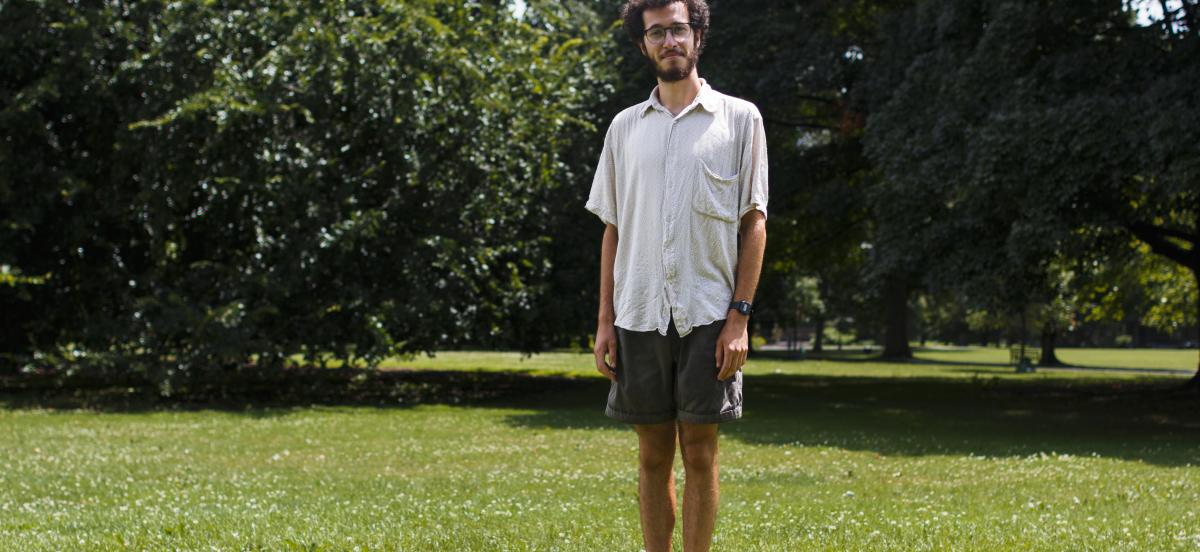Summer Centered: Nicholas Rhodes ’19 Works to Eradicate Food Deserts

Nicholas Rhodes '19 has been spending his summer teaching the basics of healthy eating to children and adults from disadvantaged communities. Photo by Alexandra Iglesia '21.
Details
Thanks to funding from the CPGC, Rhodes is interning at Philadelphia nonprofit Food Moxie.
Growth and structure of cities major Nicholas Rhodes ’19 is taking his chances with a farmer’s tan this summer. Like fellow Ford Hope Ebert before him, he spends his days “hoeing, seeding, watering, and weeding” in the fields of Philadelphia nonprofit Food Moxie.
“I am getting dirty and sweaty every day,” he says. “It is wonderful!”
Launched in the city’s northwest in 2007 to “educate and inspire people to grow, prepare, and eat healthy food,” Food Moxie has slowly but surely turned the once-bare backyards of partner organizations Stenton Family Manor Homeless Shelter and Saul Agricultural High School into thriving urban farms that produce pounds upon pounds of tomatoes, turnips, carrots and more each season---much of which goes to locals, mostly men and women of color who live in "food deserts," or neighborhoods that boast "plenty of food, none of it healthy." The scourge of sizeable urban centers the Western world over, food deserts emerged in the mid-'70s partially as a consequence of imprudent urban planning. Rhodes, an aspiring urban planner himself, is all too familiar with the profession’s troubled history.
“Many of my courses discuss oppressive power structures built into communities through intentional urban planning, including dependencies on centralized food production, neighborhood divestment, and institutionalized racism,” he says. “Along with many other factors, these often lead to areas with no secure access to healthy food. I wanted to personally experience how an organization was subverting these barriers through creative, community-focused development and educational programming.”
Thanks to the Center for Peace and Global Citizenship, Rhodes is doing his best to establish an oasis or two.
“Earlier on in the summer, I helped facilitate Garden Club, where the other Food Moxie staff and I would hang out with the kids from a local homeless shelter on the farm, plant crops and learn about how to care for them, eat the food that we grew, and learn about food systems and nutrition,” he says. “Now, however, I help out with Hope Kitchen, a program that offers basic cooking skills and nutritional knowledge to adults at the shelter.”
Though he’s enjoying “developing new agricultural skills,” it’s his participation in these educational and recreational initiatives that Rhodes believes has had the biggest impact on him so far.
“It has been wonderful to have a hand in helping the kids and adults develop a stronger connection to nature,” he says. “While I am still figuring out what I want to do after I graduate, I want to be able to use architecture to help communities create spaces that nurture people and the earth---and the creative and inclusive uses of space that I have experienced at Food Moxie have been very significant for me.”
“Summer Centered” is a series exploring our students’ Center-funded summer work.



